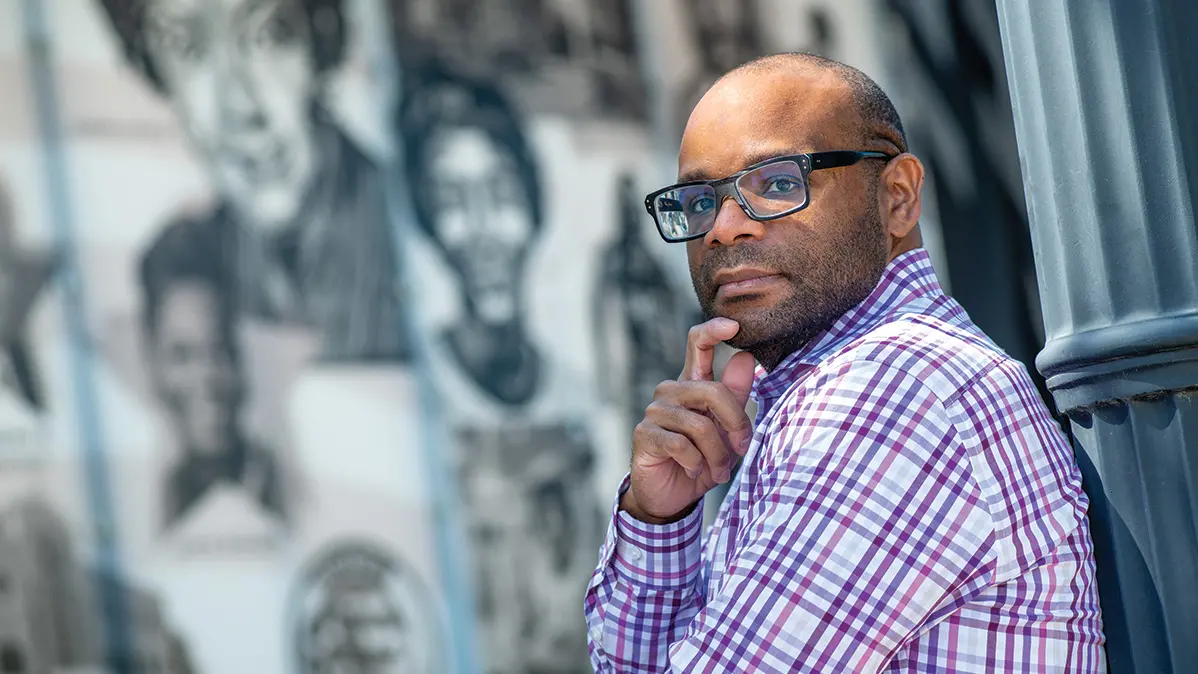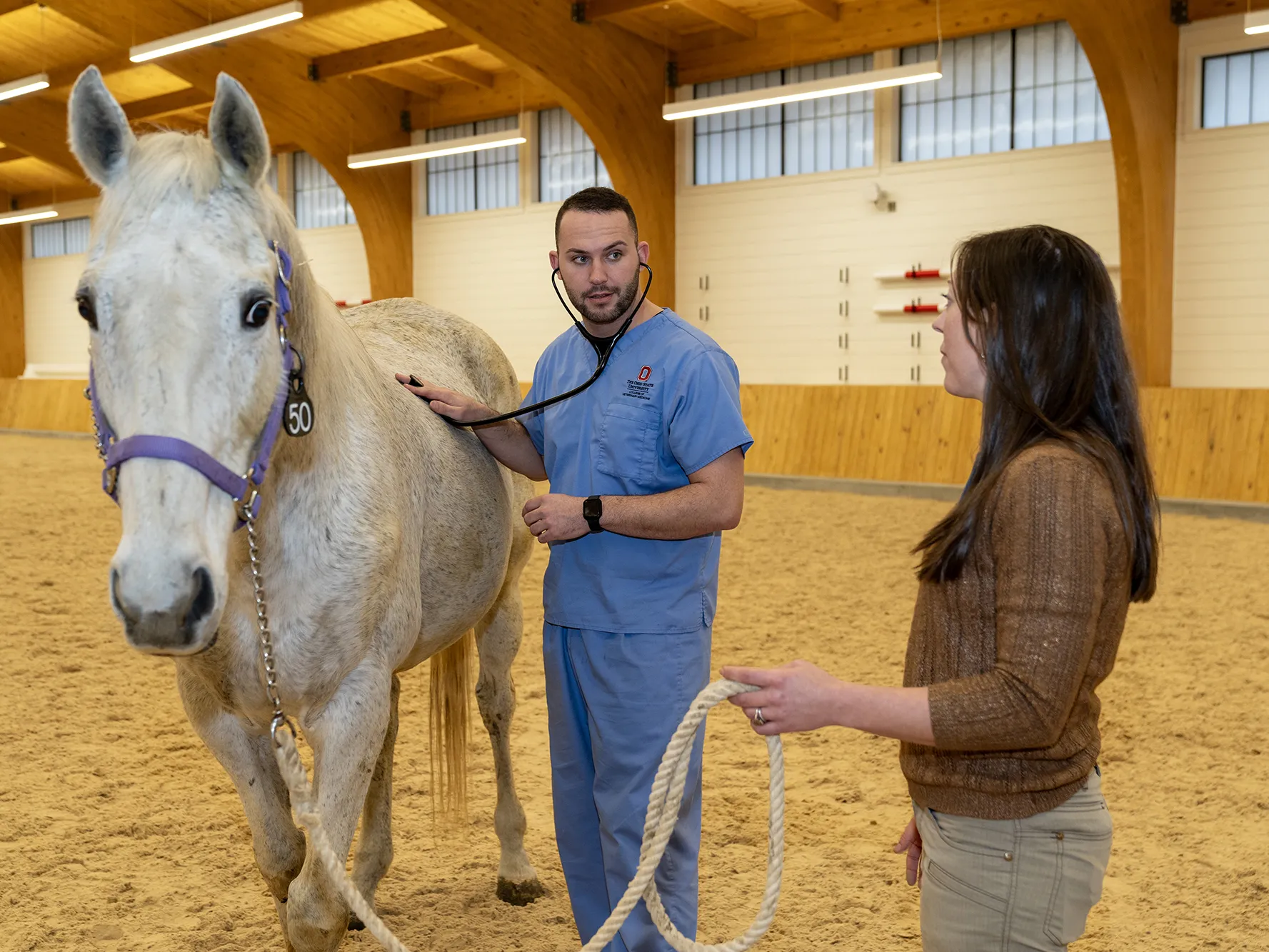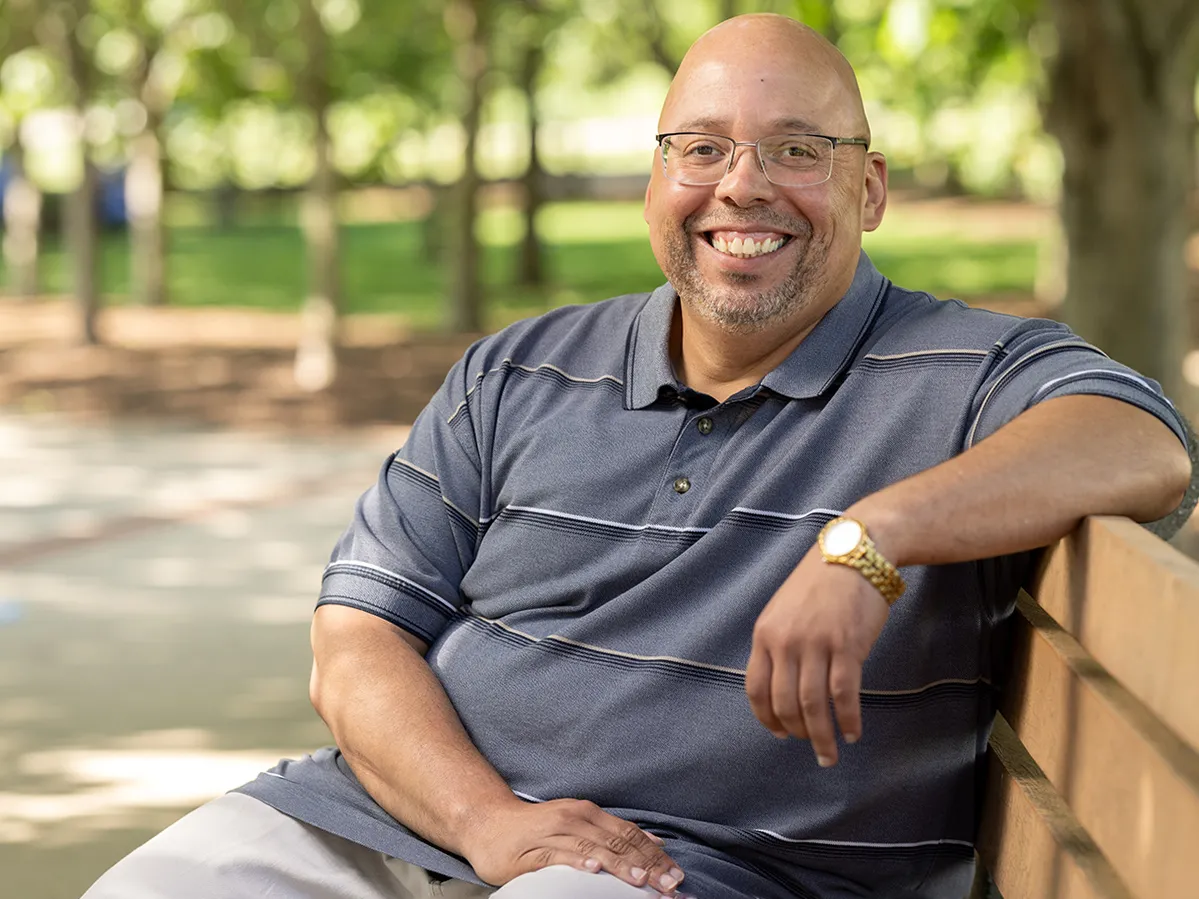Finding truths in data
Economist Trevon Logan discusses his continuing research into the history and far-reaching consequences of segregation in U.S. cities and rural areas.

Photo by Jo McCulty
Around 10 years ago, economist Trevon Logan began investigating the effects of segregation — the degree to which people sort themselves spatially according to racial identity. Logan, the Hazel C. Youngberg Distinguished Professor of Economics and associate dean in the College of Arts and Sciences, writes and researches at the intersection of history, economics and geospatial mapping, work that has revealed segregation’s relationship to lynching and other violence, health outcomes, access to wealth and homeownership.
His findings appear intuitive: You can understand how segregation could create conditions for discrimination that bridge generations. “But it ends up being novel,” Logan says. “It has strong practical import for people who think about historical context and what that might mean today. It’s important historically, and we think it’ll be important today. It turns out that it is.”
Segregation, Logan’s work shows, is a predictor of many aspects of a Black or brown person’s life in a given community — and concurrently an indicator of the attitudes and beliefs of white people in the same place. This work has pushed past old measurements and assumptions. Studies of racial harmony or discord in the past might be examined through the proportions of white and Black people in a given Census tract, for example, not through a close investigation of who lived next to whom. Logan’s work demonstrates the identity of your neighbor matters.
In the context of nationwide calls for justice, his research has broader meaning. “We would not be able to draw these links between segregation, political participation and police shootings without diverse perspectives, which are predominantly African American,” he says. “We are able to speak to issues that are pertinent today because we come from these communities and we’re thinking about the mechanisms.”
Personal histories revealed
Watch Trevon Logan’s 2018 Masterminds series talk “Finding Missing Economic Narratives.”
Bias in housing
Read “Challenging Race as Risk,” a report by Kirwan Institute for the Study of Race and Ethnicity researchers that explains the effects of implicit bias on housing opportunity and suggests steps for reversing those effects.



